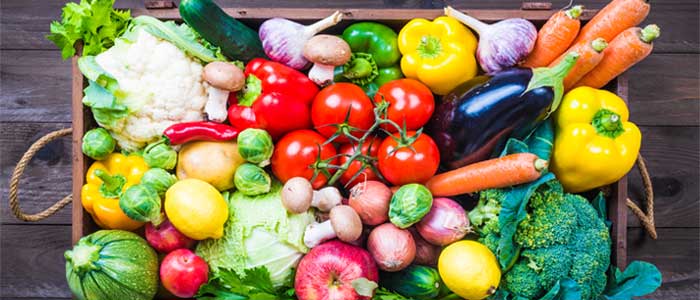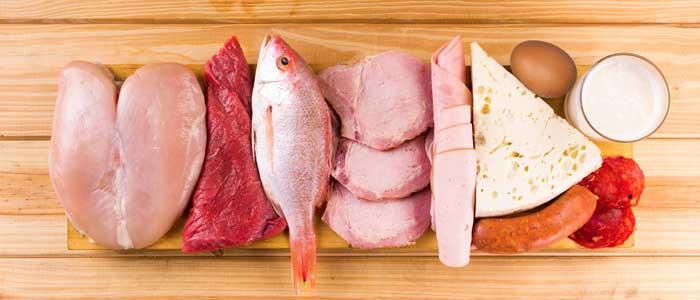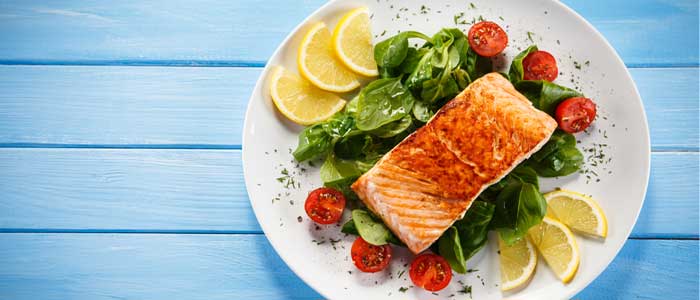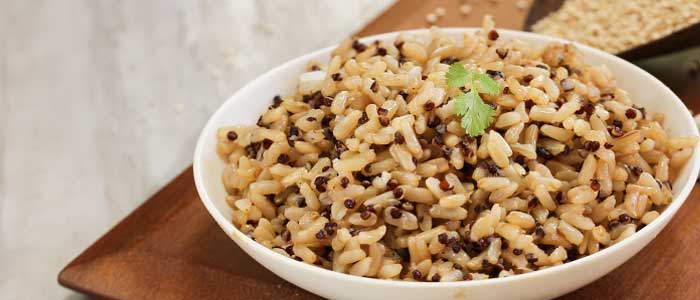6 Reliable Foods to Eat if You Are Gluten-Free
18th Mar 20

In modern society, people are going gluten-free for a huge range of reasons. Some do it through choice, to better their health choices or change up their diet; others through force due to health conditions like celiac disease. In any case, it can be a challenge to do. Gluten is an ingredient that hides in a wide variety of foods, and cutting it isn’t an easy task. That’s where you need a good knowledge of gluten-free foods and what you know you can trust in any case you need to.
One of the biggest downsides to the list of gluten-free foods, however, is the lack of carbohydrates. Naturally, high-carb foods tend to be high-gluten foods, but there are actually some exceptions that can be a great way to help keep up your calorie intake and your fitness performance if that’s a factor for you too.
In any case, let’s look at some of our favourite gluten-free food choices.
Want to move fast? Jump to the right section below.
Fruits & Vegetables

Starting with arguably the most nutritious food group out there, fruit and veg are always solid. It means that you can eat just about any fruit or veg you like to get all of the macro and micronutrients you need without fear. That’s vital for a balanced diet anyway; luckily, these aren’t affected in this situation. Be careful of your sugar consumption if you love your fruit, but it’s hard to go wrong.
Meat & Dairy

Another huge food group for you to stick to if you’re gluten-free is meat. Relatively speaking, all animal products should be gluten-free naturally. That includes everything from your milk and cheeses to beef, chicken, pork… you name it. It should be hard to get this one wrong, too (and meat alternatives are in the same boat, but always check the label).
Fish & Seafood

Although still like meat, fish still has its own mention because of how vast sea produce is. Luckily, it’s all naturally gluten-free, so whether you are going for fresh fish or seafood like shellfish and shrimp, you should be fine as long as you’re careful about other food items.
Nuts & Legumes

The last major source of nutrition that could be the most useful to a gluten-free diet is nuts and legumes (featuring beans too). These foods are all nutrient-packed and often a great place to get your carbohydrates too, and can offer you a huge range of other benefits too. Nuts are always a great food choice, and with vegetarian food alternatives being so popular at the moment, they can be easily substituted into your diet in places too.
Some Carbs

While we’re looking at getting a full, balanced diet, it’s also worth noting that to help you eat a balanced and healthy diet, it is definitely still possible to get your carbohydrate intake right, even with gluten-free food choices. To do so, you need to know what kind of carbs make the cut.
Some great choices are things such as:
- Rice
- Quinoa
- Potatoes
These 3, in particular, are all solid choices you can rely on when you need to, and they can make the whole gluten-free diet much easier than you might think.
Gluten-Free Substitutes

Finally, we also need to address the changes that food vendors have been putting into place in recent years. If you are totally gluten-free, then supermarkets even have you covered (even if that does include a higher price tag sometimes). There are often whole sections of large supermarkets dedicated to providing gluten-free food to help you keep a familiar and easy-to-manage diet. Don’t forget to check here before you try and make dramatic lifestyle changes you could struggle with.
We hope this has given you at least some guidelines in the right direction, and if you need more advice, don’t forget to check in with the pros of this kind of field. All of our info has come from sources like the NHS and Celiac Foundation as well as our own knowledge, so check in there for more help and support.
https://www.nhs.uk/conditions/coeliac-disease/treatment/

Before beginning any exercise or nutrition program, consult your physician, doctor or other professional. This is especially important for individuals over the age of 35 or persons with pre-existing health problems. Exercise.co.uk assumes no responsibility for personal injury or property damage sustained using our advice.
If you experience dizziness, nausea, chest pain, or any other abnormal symptoms, stop the workout at once and consult a physician or doctor immediately.









